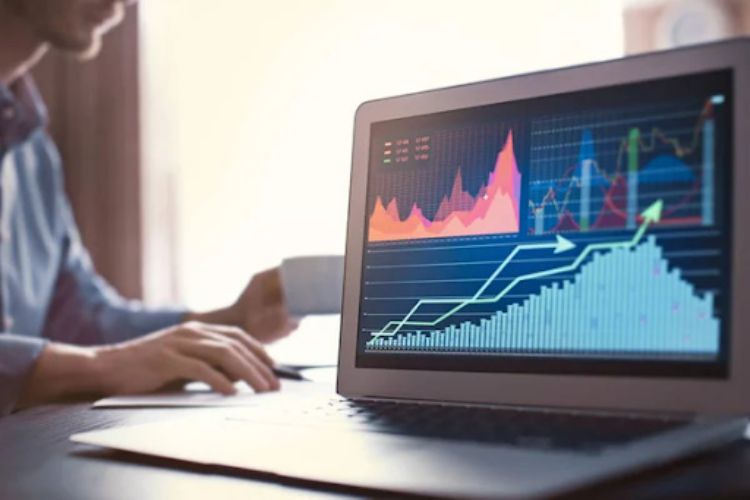 Starting out as a complete beginner in the forex market is a one-of-a-kind experience. Whether you are trying to trade for a side hustle or want to become a skilled professional who is capable of earning enough as a full-time trader, the first step should be learning. But no matter how much time we spend learning, we can never know it all, and this is especially true in the case of forex trading. There will be a lot of hits and misses, and finding your edge in the forex world can be a prolonged process. There will be a lot of trial and error as you take up trading, but some major mistakes can be avoided by simply fact-checking before trading for real.
Starting out as a complete beginner in the forex market is a one-of-a-kind experience. Whether you are trying to trade for a side hustle or want to become a skilled professional who is capable of earning enough as a full-time trader, the first step should be learning. But no matter how much time we spend learning, we can never know it all, and this is especially true in the case of forex trading. There will be a lot of hits and misses, and finding your edge in the forex world can be a prolonged process. There will be a lot of trial and error as you take up trading, but some major mistakes can be avoided by simply fact-checking before trading for real.
Unfortunately, I learned these facts the hard way from my own experience in the forex market. But you are lucky to stumble upon this blog post as I will be sharing the 3 facts that I wish I had known before becoming a forex trader.
Forex trading: lessons I have learned
Anyone who enters the market has a common goal of making profits, and so do I. Trading looks like a pretty easy way to make money in the comfort of my home. My first encounter with the forex world happened a few years ago when I bumped into an old friend who was apparently a full-time forex trader. There was this casual small talk, which later turned into a full-fledged discussion on forex trading. We bid goodbye and parted ways, but whatever we talked about, forex trading was still stuck in my brain. Then, I started doing some research and found the trading world interesting.
Just like any other beginner, I was excited to enter the lucrative space and was determined to follow in the footsteps of my friend, who was doing well with trading alone. I wanted to build a successful career as an independent trader and spend a lot of time learning every piece of information on trading. It did seem complicated at first, but I was able to comprehend it well over time. I also indulged in practical learning by trading on a demo account. I took enough time to devise a strategy that would suit my requirements and goals as a trader. I also backtested it many times to make it as perfect as possible.
I was ready to make it big in the forex world and started trading on a live account with a balance of $10,000. My plan is to earn around $1 million in the next 10 years. It was not completely unrealistic, but I was too optimistic at that moment. My strategy didn’t bring the results that I expected, and I ended up losing around $2000 within 2 weeks. I stopped trading when I realized I was at risk of losing it all, but I was determined to get back after some more preparation. I was quite successful in my 2nd attempt, and my story is proof that you may not get it right in the first attempt itself, but this does not mean you need to quit trading as a whole.
When reviewing my performance in the initial phase, I could spot where I went wrong, which is the key to success in any field. However, I wish I could go back in time and let my past self know about the mistakes I had to avoid for a better beginning. But I am glad that I am in a position to guide others who are going through a similar phase, and on that note, let’s get into the 3 facts that I wish I had known before becoming a forex trader.
1. It takes time to become successful in trading
Most people who enter the forex market have a misconception that the currency market offers a shortcut to success and that they can expect to get rich really quickly. I also started trading, with the dream of becoming a millionaire as soon as possible. I was expecting to see some profits from the first day itself and was overconfident about my strategy. However, the market is unpredictable, and I will never suggest a beginner to start with a $10,000 account like I did. It would be better to start smaller and with realistic expectations. You may not be able to win any trade on the first day, which is normal.
It must be tiring to wait until your first win, but this should never lead to over-trading, a common mistake beginners make in the initial phase. Being impatient and rushing the process will only make things worse for a trader. Patience and discipline can do wonders when it comes to trading. You need to understand the fact that overnight success is not a common phenomenon in the forex world, and knowing this will allow you to stay focused on work and wait for the results.
2. A profitable strategy can fail due to excess leverage
Another lesson I learned from my mistake is that even a profitable strategy can fail due to excess leverage. You might be thinking that leverage is only used for increasing the trade size, and why would you encounter losses with it if your strategy is profitable to begin with? The problem with leverage is that you are trading with money you originally didn’t have in your account, but it gives you the power to open larger positions. If you win the trade, you will be safe, but a single loss can become fatal if your account is over-leveraged.
Your risk per trade should never be more than 2% of your account balance, and many traders tend to break this rule while using excess leverage. They only see the potential profits they might gain after winning a trade and forget about the potential losses. They end up losing a lot of money by going all-in with a larger trade size. Leverage is always referred to as a double-edged sword, and a trader needs to handle it carefully to avoid losing anything more than they can afford.
3. You can earn without trading by investing in Forex MAM/PAMM accounts
Another fact I wish I had known before getting into trading is the opportunity to earn as an investor in the forex market. When we think about forex, we only think about trading on our own. Many people don’t know about managed forex account services like MAM/PAMM accounts, where we get an opportunity to earn by simply investing in the strategies of account managers who will take up the task of initiating and executing trades on your behalf. Forex MAM/PAMM accounts operate under a unique structure. Skilled and experienced traders manage these accounts, making trading decisions on behalf of multiple investors.
Investors contribute funds to the account, pooling their investments together creating a larger trading capital. The trader then uses this aggregated capital to execute trades in the forex market. Profits and losses are distributed among investors based on the proportional share of the trading capital they contributed in the case of PAMM accounts. In the case of MAM accounts, there is an option to change the allocation of trades, and investors get more control over the trading activity by setting parameters for fund allocation and risk management.
One of the most appealing aspects of investing in Forex MAM/PAMM accounts is the passive nature of the investment. This can be especially attractive to individuals who lack the time, knowledge, or inclination to actively trade. Additionally, the pooled nature of funds can lead to better diversification and risk management, potentially reducing the impact of market volatility on individual traders. The performance of the account is directly tied to the trader’s decisions and market conditions, and losses can still occur.
But it is still a feasible alternative that you can consider when you are a beginner without any experience or just lack time to trade yourself. You just need to find a reputed broker offering these types of accounts and build a well-diversified investment portfolio to mitigate the risk and maximize your returns as an investor.
Final Words
To sum it up, making mistakes is normal when you are doing something for the first time, and the same can happen in forex trading, too. But not taking up an opportunity due to the fear of failure is the biggest mistake. The facts I shared here will be useful to avoid some major mistakes as a beginner. Take your time to research and start trading with a cautious approach when you are ready.




